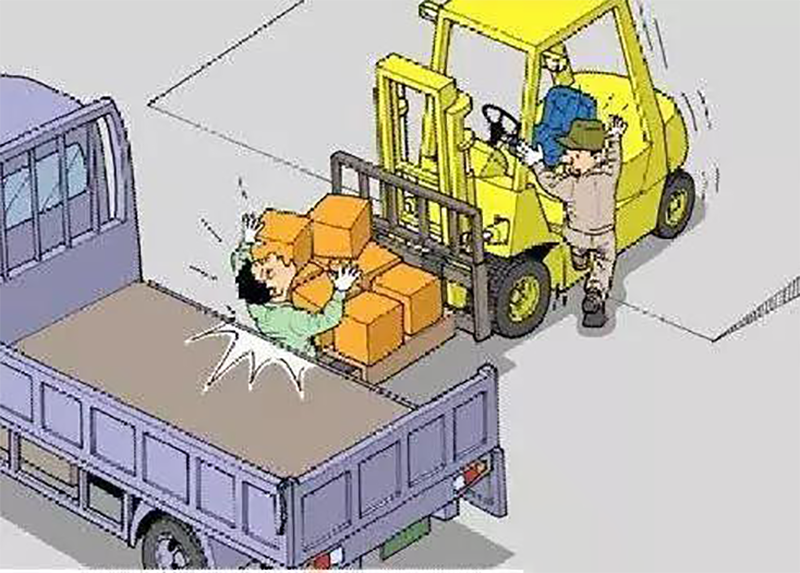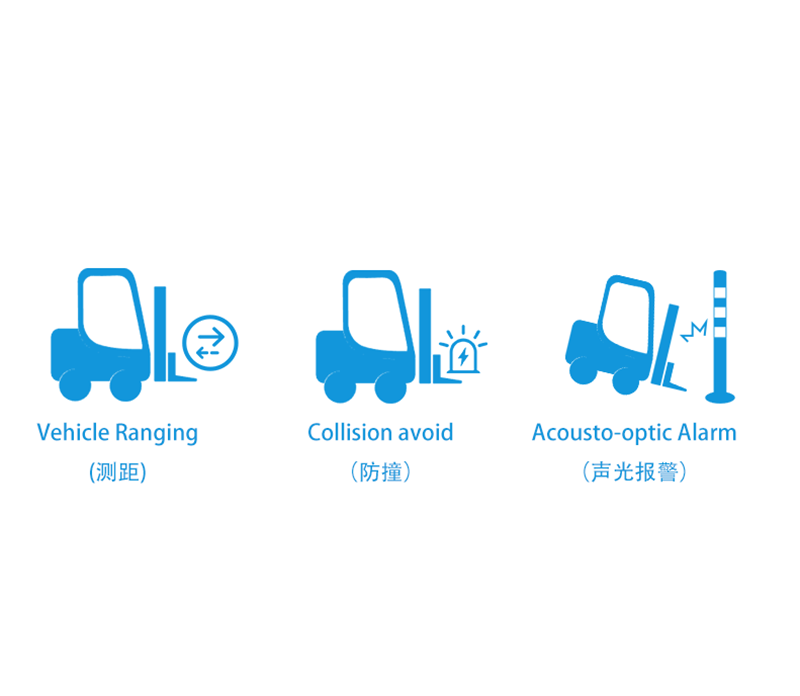Making Wireless IoT Project Easy, Smart, Secure.
GET A FREE SAMPLENowadays, many types of heavy construction machinery are used in construction sites and warehouses, greatly improving the efficiency of engineering construction. However, there are also some drawbacks. For example, there are accident blind spots in the operation process of construction machinery, which can easily lead to safety accidents. These blind spots may exist within the rotation range of the hook excavator arm, on the excavation path of the excavator bucket, or on the side and rear of the vehicle. Due to the difficulty for operators to directly observe the situation of these blind spots, it is easy to make misjudgments about the surrounding environment.
In order to solve this problem, collision warning systems have emerged. The collision warning system can help construction machinery operators detect obstacles or personnel in blind spots in a timely manner, thereby avoiding collision accidents. These systems typically use sensors such as radar and cameras to detect the surrounding environment and issue warning signals to operators through sound and light alarms.
The installation of collision warning system can improve the safety of hook operation and reduce the occurrence of accidents. At the same time, these systems can also improve the work efficiency of operators, reduce downtime and maintenance costs caused by accidents.

He finally emphasized the need to focus on safety production, further investigate safety hazards, strengthen early warning and monitoring, and implement emergency measures to ensure the safety of people's lives and property.
This solution can solve the mutual distance measurement between construction machinery and construction machinery, as well as between construction machinery and personnel, to avoid collisions between them and reduce the occurrence of human accidents. Based on UWB high-precision ranging and advanced UWB positioning and ranging technology as the core, TOF multi group bidirectional ranging algorithms are used to achieve precise ranging, with an average ranging accuracy of up to 10cm. And combined with sound and light alarms to form a collision warning device, achieving collision warning function. When a collision is about to occur, an alarm is triggered to alert the operators of the construction machinery. At the same time, the anti-collision label (employee's work card, helmet, watch) also emits warning lights, vibrations, and warning beeps to alert relevant personnel.

Construction machinery and personnel collision prevention warning
Due to obstructed vision, the driver was unable to detect the presence of pedestrians in a timely manner. They can use UWB base stations to sense pedestrians wearing anti-collision labels (work cards, helmets, watches worn by employees) and the presence of construction machinery installed in UWB base stations, thereby achieving early warning.
Construction machinery and collision prevention warning for construction machinery
The UWB base station on construction machinery measures distance from other UWB base stations on nearby construction machinery, outputs control signals to relays, controls alarms and the power supply of the construction machinery itself, thereby achieving sound and light alarms and emergency braking.
Principle of anti-collision warning scheme for construction site personnel and machinery
Install UWB base station VDU2508J on construction machinery, combined with sound and light alarm devices, to form a collision warning device. Personnel should wear matching anti-collision labels VDU1506R (safety helmet label), VDU1502 (watch), and VDU1521 (work card). Through the installation of UWB base stations on construction machinery and the high-precision distance measurement between UWB tags and work cards carried by personnel, it is possible to simultaneously achieve precise distance measurement between multiple construction machinery vehicles and between multiple personnel and construction machinery. This can achieve collision warning between construction machinery and construction machinery, as well as between construction machinery and personnel.
In addition, the ranging accuracy between UWB base stations and UWB base stations, as well as between UWB base stations and UWB tag work cards, is as high as 10CM, with precise ranging and small errors.
The UWB base station can set its own ranging range and warning threshold according to the scene. When the distance between two construction machinery is lower than the set safety warning threshold, the UWB base station outputs a control signal to the relay after measuring distance with another UWB base station, which then controls the alarm and the power supply of the construction machinery itself, thereby achieving sound and light alarm and emergency braking.
UWB base station: VDU2508J is a long-distance UWB base station launched by Microenergy Information. The bidirectional distance between base stations can reach 500 meters, making it very suitable for applications that achieve collision warning through precise distance measurement.
UWB labels: VDU1506R (safety helmet label), VDU1502 (watch), VDU1521 (work card).
System: Our independently developed device software management platform supports deployment.

Ensure personnel safety: prevent personnel from being injured by mechanical collisions and avoid serious personal injury accidents.
Protecting construction machinery: avoiding damage caused by collisions, reducing maintenance costs and downtime.
Ensure construction progress: reduce downtime and delays caused by accidents, and ensure that the project proceeds as planned.
Improving construction environment safety: reducing collision risks and creating a safer construction operation environment.
Excavators, loaders, bulldozers, tower cranes, construction elevators, concrete mixers, rollers, etc.
Construction machinery, pallet handling vehicles, conveyor belts, cranes, winches, electric tractors, etc.
Copyrights© Shenzhen Skylab Co.,LTD All Rights Reserved.

